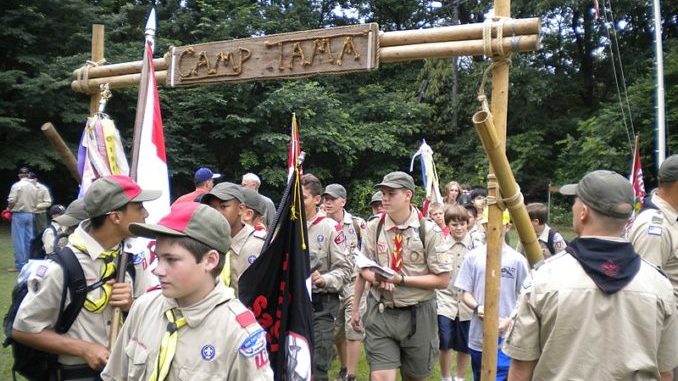
Ah, the Boy Scouts. An organization devoted to educating young men on basic citizenship and an appreciation of both knowledge and morality. And the Girl Scouts, similarly devoted to educating young women on all of the same topics and also on how to market cookies.
These organizations – the Boy Scouts especially – have faced significant backlash in the United States over the last decade both due to a shifting public perception on general morality as it applies to homosexuality and due to revelations of improprieties by scoutmasters in the past. There are many weighty topics to consider regarding scouting, as people measure its benefit in the past against its usefulness in an information age and the positives of forming associative bonds at young ages vs. the risks faced when leaving part of a child’s development to his peers and a scoutmaster.
So let’s not consider any of those. It’s late. Instead, let’s take a look at some of the oddest Scouting badges. And while we’re at it, let’s do a truly deep dive and refuse the easy ethnocentrism. While the Boy Scouts of America have been in trouble, there are associated scouting groups in dozens of countries which are still going strong, and which have badges not typically seen in the United States.
For example, the Leprosy Control badge of the Bharat Scouts of India. It’s badge #61 in their badge list, and while there’s no equivalent in the United States, it’s certainly a helpful skill to have if someone around has leprosy. (If nobody does, it’s probably better to go for the Camelman badge.)
The Boy Scouts of America do have an Indian Lore badge, but unfortunately it doesn’t teach them how to cross-train to get Leprosy Control, it’s all about Native American studies, just with the old-school terminology still in place. Still, more people earn Indian Lore each year than the least popular US badge – Bugling.
The US group isn’t the only organization to honor other cultures, though. That’s seen in the UK, too. And while the US may wish to have their members study the lore of those whose ancestors resided upon the land before European settlers arrived, the UK celebrates… China. Specifically, the ancient Chinese sport of Dragon Boating.
As far as “ancient” goes, though, Kenyan scouts learn some skills which are truly fundamental for civilization. There, scouts can earn not just the Reader badge available in most countries but also the Scribe badge, the Joiner badge (a specialized form of the more common Woodworker badge) and the Rope Maker badge
The Philippines Scouts, on the other hand, have decided to go for broke and get very specialized for some of their badges. Those who find the Agriculture badge too broad can instead go for Coconut Growing, Tree Farming, Duck Raising or Rabbit Raising.
Unsurprisingly, that last one isn’t available for Australian Scouts.
Thus, while there have been a number of people who have managed to successfully get all of the available badges as a Boy Scout (or Girl Scout), to date nobody has REALLY received all of them… because due to the international associations between all of these groups, a Scout in one country may be awarded appropriate merit/proficiency badges from other nations while they are in those countries. They just can’t wear them while they’re in the U.S.; those badges are only to be worn when they’re visiting the country which awarded them.
Any Eagle Scouts out there, you have a new mission….
Question of the night: What’s a skill you wish you had?
